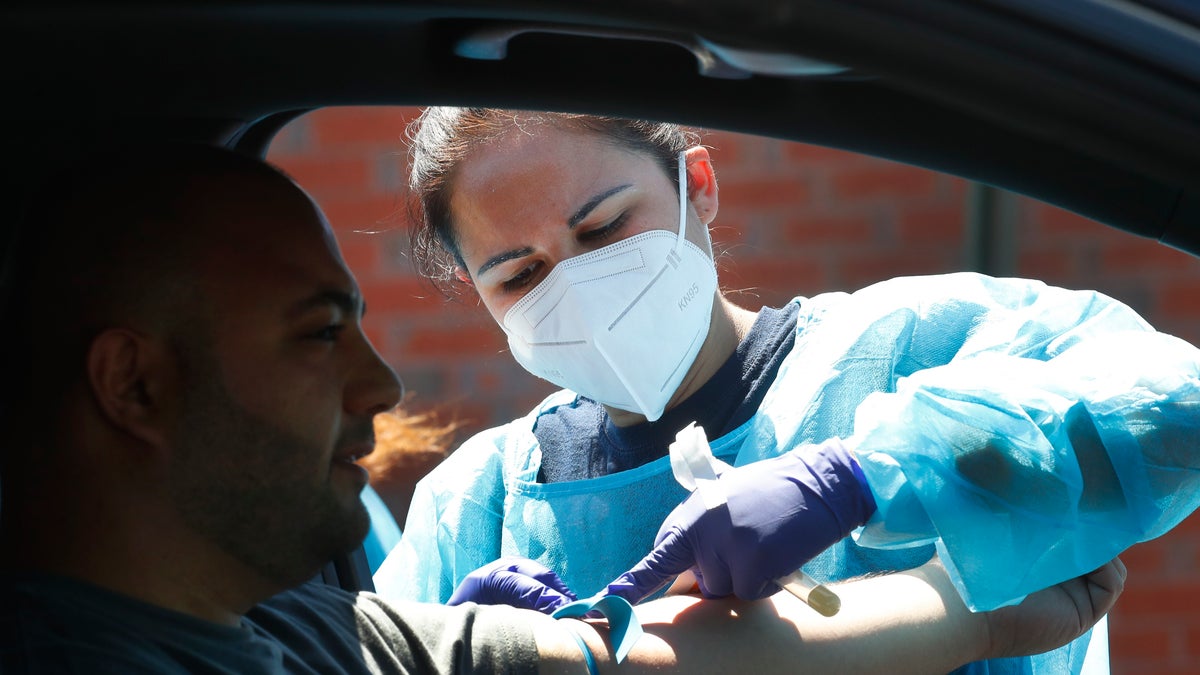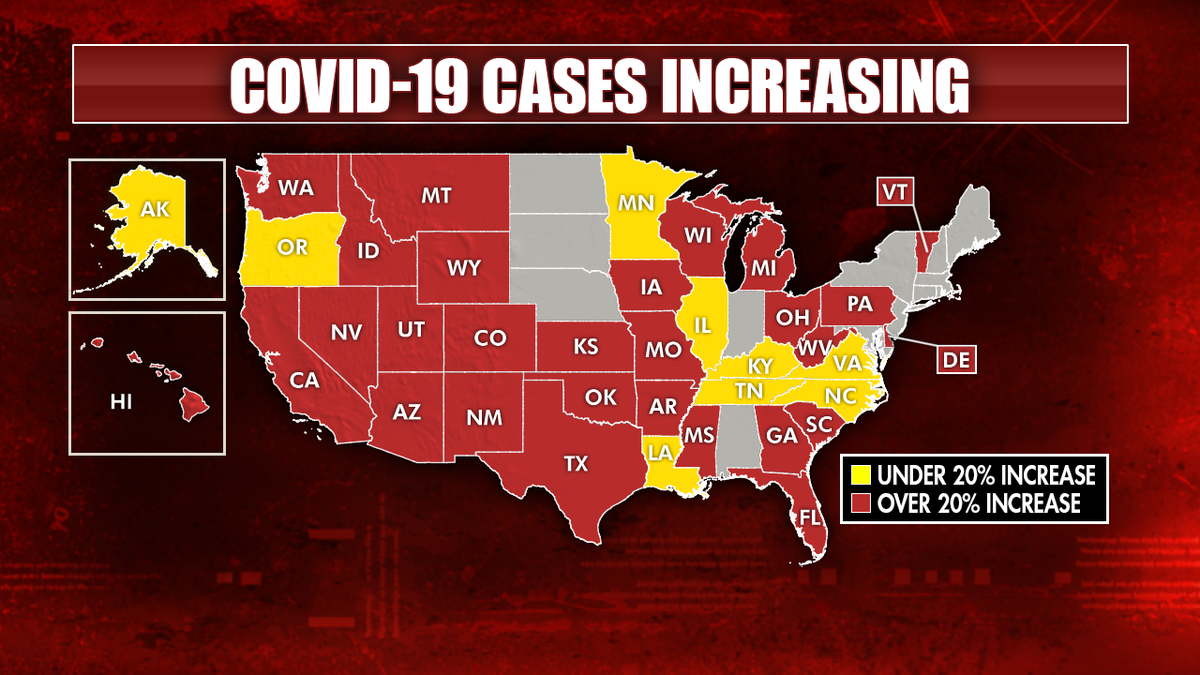Columbia doctor worried over ‘silent spreaders’ losing their antibody ‘shield’ in as little as two months
Americans went to antibody test sites in droves to find out if they had been infected by COVID-19 and therefore would have some level of immunity from the virus, but a new study out of China reveals some coronavirus patients may lose their antibody ‘shield’ in as little as two months.
A new Chinese study published in Nature Medicine suggests that people who develop antibodies after becoming infected with the coronavirus may not keep them for more than two months — a growing concern as several states in the U.S. see alarming spikes in COVID-19 cases.
Antibodies are the proteins produced by the immune system that can grant protection against reinfection. When the coronavirus hit the United States, Americans went to antibody test sites in droves to find out if they had been infected by COVID-19 and therefore would have some level of protection from the virus, but findings like this calls into question just how safe people who have antibodies to the virus really are from reinfection.
“When you get an antibody test, we don't really know enough to be able to assure you that you're safe. And I think the more we're learning about antibodies, the more we're beginning to say we're not so sure that you're safe,” Dr. Daniel Griffin, an infectious disease specialist at Columbia University Medical Center, told Fox News.

(AP Photo/Paul Sancya)
In the study, researchers from Chongqing Medical University in China looked at 37 people who became infected with the coronavirus and showed symptoms and 37 people who became infected and showed no symptoms. Out of the participants involved, antibody levels fell to undetectable levels in 40 percent of asymptomatic people and 13 percent of symptomatic people just eight weeks after they recovered from COVID-19.
“Many of us were quite disturbed when we saw this study out of China, which actually demonstrated that in a number of individuals, particularly these individuals with more mild disease, that we're worried are the silent spreaders, that these individuals were losing their antibodies shield after just a month or two,” Griffin said.
CORONAVIRUS SURGE COULD CAUSE TENNESSEE TRAVELERS TO FACE 14-DAY QUARANTINE: 'WE BLEW IT'
Like many doctors, Griffin hoped that COVID-19 would leave those infected with a protective shield for a year or two since past studies on similar viruses like SARS and MERS found that antibodies last for at least a year.
“This is why we keep seeing the common cold coronaviruses cause infections on a yearly basis, often in the same individuals and we've even seen them do this in the same individual just a few months apart,” Griffin explained. “So this is quite worrisome that here we're seeing evidence that maybe a person can get COVID-19 more than once, maybe more than once in a short period of time.”
The findings in the new Chinese study also calls into question the idea of “immunity passports,” which some countries may issue to recovered COVID-19 patients to allow them to go back to work and travel because they're supposedly immune to the virus. But Griffin doesn’t think we’re ready for this type of approach quite yet.
“We certainly don't know if people who have been infected have durable protection because we haven't shown that certain antibody level when you've been re-exposed protects you,” Griffin said. “We also don't know if natural infection is durable. So even if we found that, hey, a certain level of antibodies correlates with protection, how often do you need to check that individual to make sure that they're maintaining that level?”
As new coronavirus hot spots begin to emerge across the U.S. in states like Texas, California, Florida and Arizona, Griffin believes the summer weather, which some experts originally thought would help slow the spread, is actually playing a large part in the virus’ resurgence.

“You look at a lot of places where the numbers are rising and these are places where it's gotten quite warm, but it's gotten so warm that a lot of people are inside in the air conditioning,” Griffin explained. “Everyone wants to blame people [and] say they must be doing something wrong, but what they're doing is they're trying to get out of the heat. They're in the air conditioning. They're too close to one another, which is a very human thing to want to do, but that puts us in harm's way.”









































